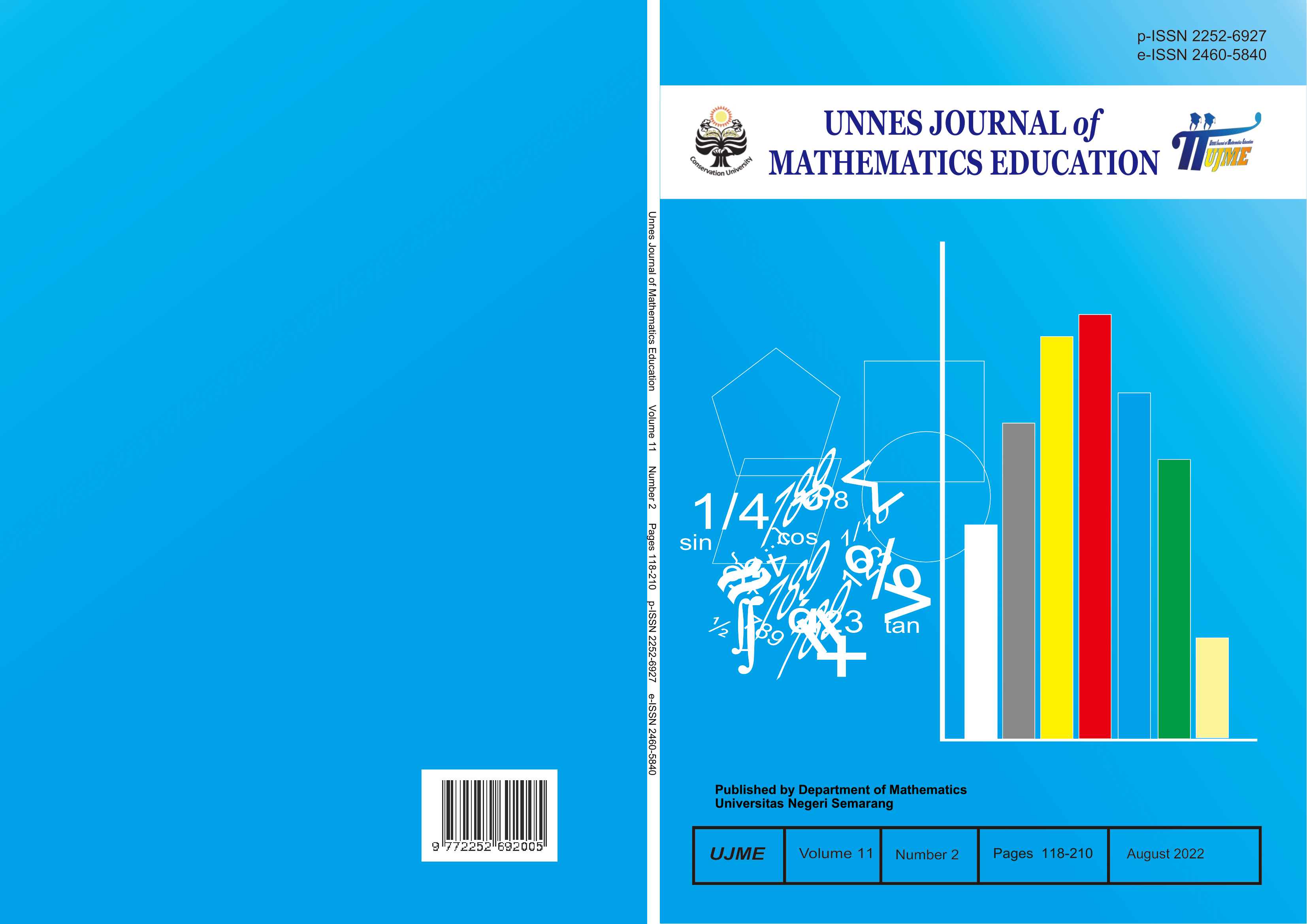Development of Ethnomathematics-Based E-Module Using the Inquiry Learning Model to Improve Mathematical Problem Solving Ability
##plugins.themes.academic_pro.article.main##
Abstract
The purpose of this research was to produce an ethnomathematics-based e-module development on an inquiry learning model that was valid, practical, and effective in improving students' mathematical problem-solving ability. This study used the Research and Development (R&D) method with the ADDIE development model, which includes Analysis, Design, Development, Implementation, and Evaluation. Data collection techniques used questionnaires and tests. The data analysis technique used a Likert scale, the one-sided average test, and the two-sided average difference test. The results of this study indicate that e-module have very valid criteria for use in the learning process with an average validity percentage of 88.54%, e-module have very practical criteria for use in the learning process with an average practicality percentage of 87.33%, and e-module are categorized as effective or can improve students' mathematical problem-solving ability, which is indicated by (a) students' mathematical problem-solving ability with ethnomathematics-based e-modules using the inquiry learning model to achieve mastery criteria; (b) students' mathematical problem-solving ability with ethnomathematics-based e-modules using inquiry learning models are better than students' mathematical problem-solving ability in conventional learning.
##plugins.themes.academic_pro.article.details##
References
BSNP. (2015). Pedoman Penilaian Buku Teks Matematika. Jakarta: Ristekdikti.
D’Ambrosio, U. (1985). Ethnomathematics and its Place in the History and Pedagogy of mathematics. For the Learning of Mathematics, 5(1), 44-48.
Mardiah, S., Widyastuti, R., & Rinaldi, A. (2018). Pengembangan Modul Pembelajaran Matematika Berbasis Etnomatematika Menggunakan Model Pembelajaran Inkuiri. Desimal: Jurnal Matematika, 1(2), 119-126.
Marsigit. (2016). Pengembangan Pembelajaran Matematika Berbasis Etnomatematika. Padang: STKIP PGRI Sumatera Barat.
Supriyanti, S., Mastur, Z., & Sugiman, S. (2015). Keefektifan model pembelajaran arias berbasis etnomatematika terhadap kemampuan pemecahan masalah siswa kelas VII. Unnes journal of Mathematics Education, 4(2), 135-141.
Kemendikbud. (2016). Peraturan Menteri Pendidikan dan Kebudayaan Republik Indonesia Nomor 21 Tahun 2016 tentang Standar Isi Pendidikan Dasar dan Menengah. Jakarta: Menteri Pendidikan dan Kebudayaan Republik Indonesia.
NCTM. (2000). Principles and Standards for School Mathematics. Reston: The National Council of Teachers of Mathematics, Inc.
Polya, G. (2004). How to solve it: A new aspect of mathematical method (Vol. 85). Princeton university press.
Rahayu, W. E., & Sudarmin. (2015). Pengembangan Modul IPA Terpadu Berbasis Etnosains Tema Energi dalam Kehidupan untuk Menanamkan Jiwa Konservasi Siswa. Unnes Science Education Journal, 4(2), 920-926.
Riduwan. (2013). Skala Pengukuran Variabel-variabel Penelitian. Bandung: Alfabeta.
Sanjaya, Wina. (2006). Strategi Pembelajaran Berorientasi Standar Proses Pendidikan. Jakarta: Kencana Prenadamedia Group.
Sirate, Fatimah S. (2012). Implementasi Matematika. Jurnal Lentera Pendidikan, 15(1), 41-54.
Sugiyono. (2017). Metode Penelitian Pendidikan Pendekatan Kuantitatif, Kualitatif, dan R&D. Bandung: Alfabeta.
Undang-Undang Republik Indonesia Nomor 11 Tahun 2019 tentang Sistem Nasional Ilmu Pengetahuan dan Teknologi.
Wena, M. (2011). Strategi Pembelajaran Inovatif Kontemporer. Jakarta: Bumi Aksara.
